If you look at a sampling of the visual art that’s currently being produced in the United States, you will find an assortment that’s as varied as the artists who create it. You won’t, however, find all of that variety on offer in the marketplace, and that’s largely because artists are often unable to get their work to the audiences that are most likely to support it.
In many cases, that gap is not a dearth of talent, but rather a lack of business training and expertise. No matter how masterful their technique or profound their message, artists must also acquire the skills to manage their art practice as a successful business if they want to support themselves through the creation of their art.
The Clark Hulings Fund for Visual Artists (CHF) is helping artists achieve this goal through its intensive Art-Business Accelerator, a yearlong virtual course of business study that equips visual artists to thrive as entrepreneurs and build a career with staying power. On January 8th, the national nonprofit organization welcomed its latest group of Fellows, choosing 16 artists for its 2019 Accelerator class.
CHF Accelerator Fellows receive customized entrepreneurial training, publicity, network-building opportunities, sales assistance, and one-on-one support to help make their businesses self-sustaining. The educational program consists of broad strategic workshops and labs delivered by remote technology, and provides participants with practical knowledge that they can apply in the real world, including how to build a business plan, price their work for profit, win an audience through storytelling, market their brand, negotiate contracts and close the deal, manage their finances, handle copyrights and trademark infringement, and make the most of the technology that’s currently available to them. Each workshop is led by a subject-matter expert, and the labs are deep dives that include extensive time for Q&A, which allows Fellows to obtain feedback on their specific questions and hear the perspectives of their peers.
According to 2017-2018 Fellow Gregg Chadwick, who recently graduated from the program and now mentors the current class as a Fellow Advisor: “The [Accelerator] is like the missing year from my Master in Fine Arts program.”
Assembling a Team That Works Together
It was a challenge for the CHF leadership team to choose the class of 2019. The quality level was high, and the average applicant has been a professional artist for approximately 15 years. “It was a very diverse group,” says CHF Director Elizabeth Hulings, “in terms of medium, style, genre, stage of career, business model, interests, background, and location. That made for a competitive and exciting selection process.”
The application was rigorous—designed to identify those artists who’ve already demonstrated a commitment to growing their businesses, and who are keen to put in the effort that will get them the rest of the way toward this goal. However, beyond the assessment of individual artists, the CHF team also had to gauge how well the Fellows would be able to collaborate amongst themselves. “We have to make sure the cohort will integrate and coalesce around the intense work they’ll be doing,” says Hulings, “and that was a bit of a puzzle this time around. We think these 16 Fellows will mesh well.” Collaboration is a pillar of the program, and the network these artists form with each other is one of the Accelerator’s most important impacts. “[It] has proven to be the best part for me,” says printmaker Bethany Taylor, who just graduated from two years in the program. “Though the webinars and guidance of the highly skilled leaders is invaluable, it is logical. The aspect of the program that is ‘illogical,’ and can only be found in shared experience, is having a fear allayed by another artist who has also been uncertain, or less than confident, when in the same situation. That camaraderie has been of great comfort; it has allowed me to move forward through these two years with confidence that I can be a successful artist and businessperson.”
Meet the Class of 2019
The incoming class of Fellows represents a true cross-section of today’s American art scene, featuring painters, sculptors, printmakers, glass artists, and more, hailing from California to Georgia, from Ohio to Texas. Their specific career trajectories and life experiences are just as heterogeneous.
Sculptor Manuelita Brown worked as a math educator in public secondary schools and institutions of higher learning for 32 years before pursuing her art career on a full-time basis. Painter Jonathan Keeton spent three decades as a pioneer in digital visual effects for television, films, and commercials. Painter Tim Saternow did set and lighting design for Broadway shows, and worked in television and film design, even earning an Emmy Award nomination for art direction. Sculptor and mixed-media artist James Moore has been a banker, competitive bodybuilder, stroke survivor, and even homeless, but continued to create art professionally throughout the many twists of his life’s journey.
- Jonathan Keeton
- James Moore
- April Wagner
- Jonathan Keeton “Highway”
- Art by James Moore
- April Wagner “Blue Papillon”
Though their backgrounds are diverse, these Fellows all share the same desire and drive to boost their art careers to the next level, and they’re unwilling to accept the fiction that artists are incapable of handling business affairs. Take, for example, Fellow April Wagner, a glass artist from Pontiac, Michigan, who established and runs Epiphany studio—one of the largest private hot-glass facilities in the Midwest—where she supervises a team of six employees. “I think we all start out believing the myths we are told,” she says, “but the idea of ‘the starving artist as purist’ is crap. There is no shame in wanting to be recognized and compensated for the work we do. Money is the exchange of value, and I want my work to be valued so I can be a force for good in my community and in my family.”
This sentiment is echoed by Brown, who understands the link between her artistic objectives and the need to sustain the income that makes those objectives attainable. “I want my work to elicit personal, even intimate, emotions from the viewers,” she says. “An understanding of funding sources and a sound business plan will enable me to create the work that I want to make by providing the financial backbone for my creative vision.”
- Tim Saternow
- Robin Holder
- Manuelita Brown
- Tim Saternow “PARK M23 and 10th Ave”
- Robin Holder “brushed nickel is so elegant 1”
- Manuelita Brown “Encinitas Child”
A Powerful Learning Community
The professional life of a visual artist is often a solitary one, which is why it’s so vital that they have a way to connect with other artists. A sense of fellowship provides a sounding board, allowing them to express their concerns and learn from each other’s experiences. In many ways, that give and take is an extension of the work they produce in their studios. It’s what their art offers the rest of us: the ability to learn and see the world with fresh eyes. “Every day, artists birth objects into the world that didn’t exist before. What if we could use that creative power to positively transform how people relate to themselves and each other?” asks Moore. “I want to be part of a mutually supportive community—a tribe of my peers.”
Those connections are incredibly valuable for all visual artists, not just Accelerator Fellows, which is why CHF built the Thriving Art Exchange. This community, which can be accessed via the organization’s Digital Learning Portal, provides a space where artists and other experts can share information and insights designed to foster a vibrant art industry. As CHF Fellow and mixed-media artist Robin Holder says, “I want to collaborate in a think tank in which artists are committed to being agents for their own prosperity.”
Learn more about CHF’s current class of Accelerator Fellows by visiting this webpage and selecting the 2019 tab. To join CHF’s Thriving Art Exchange, register here.

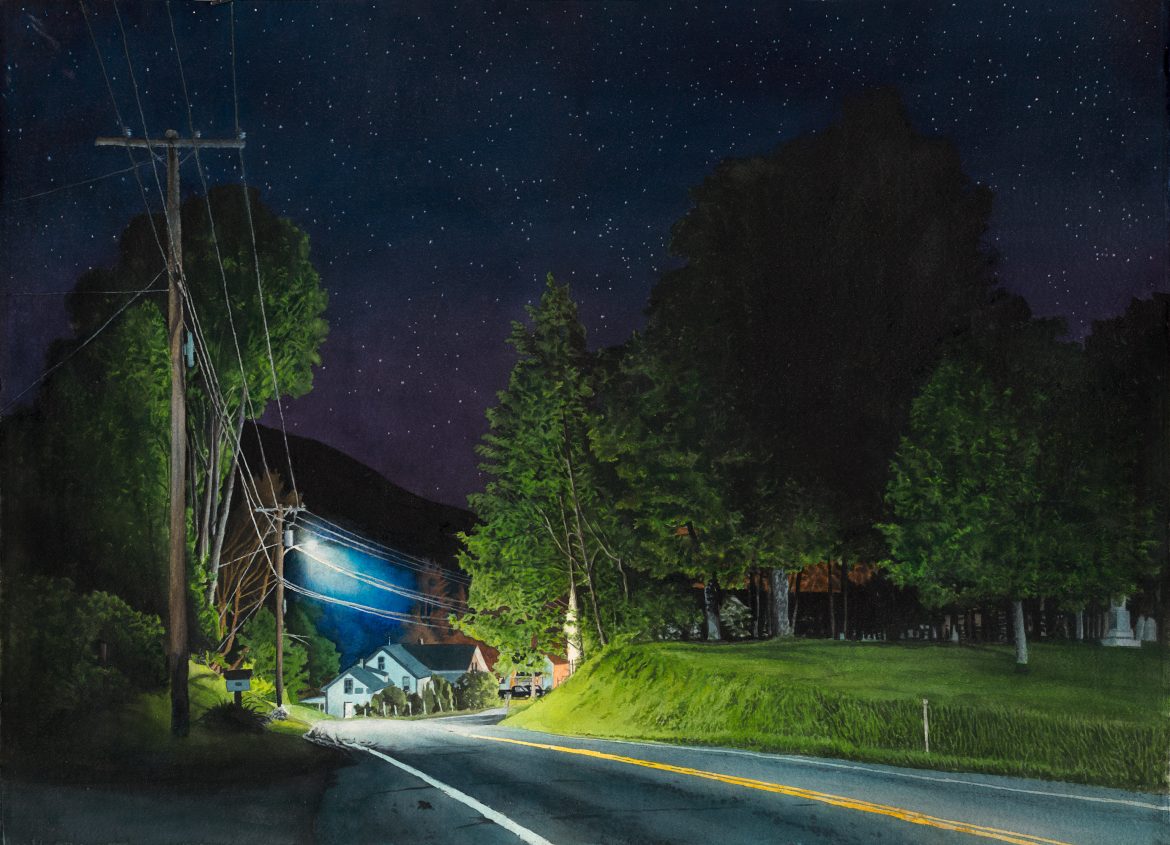
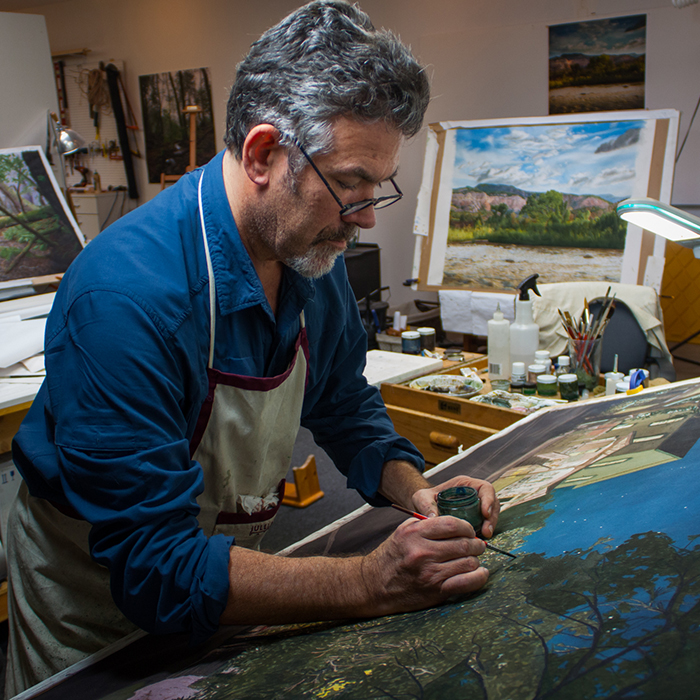
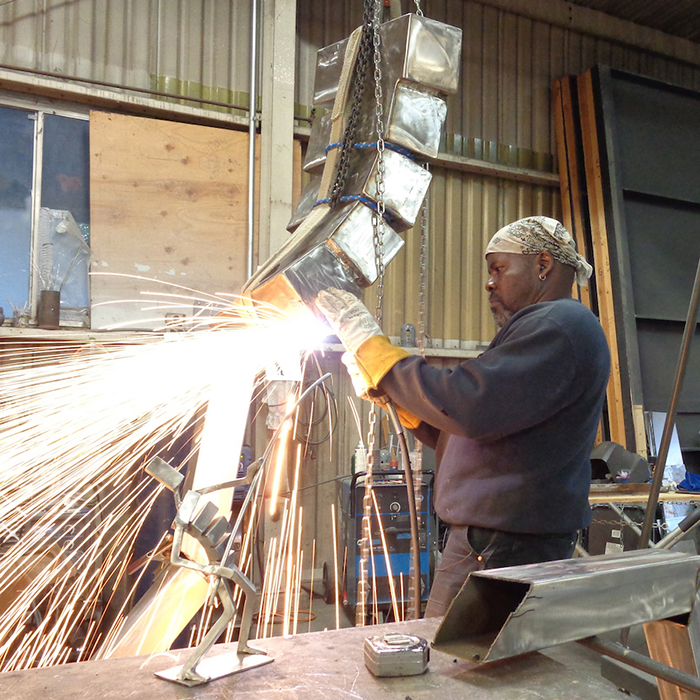
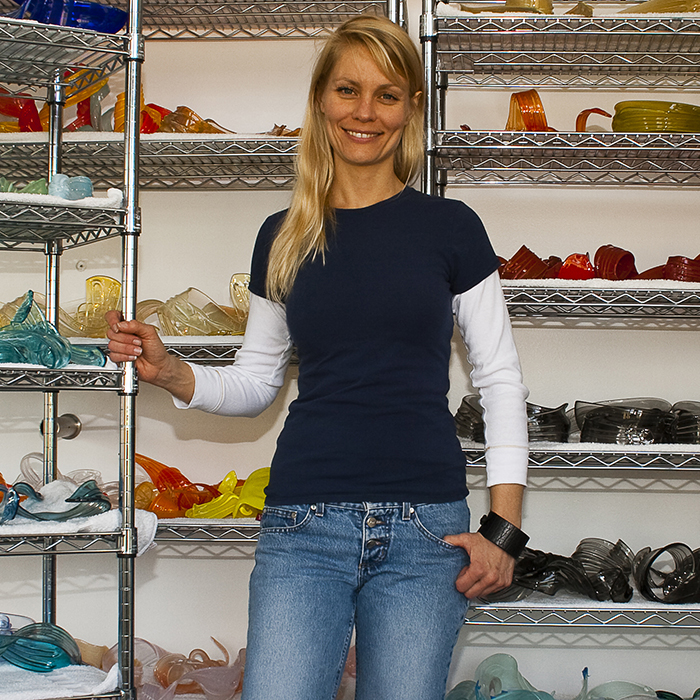
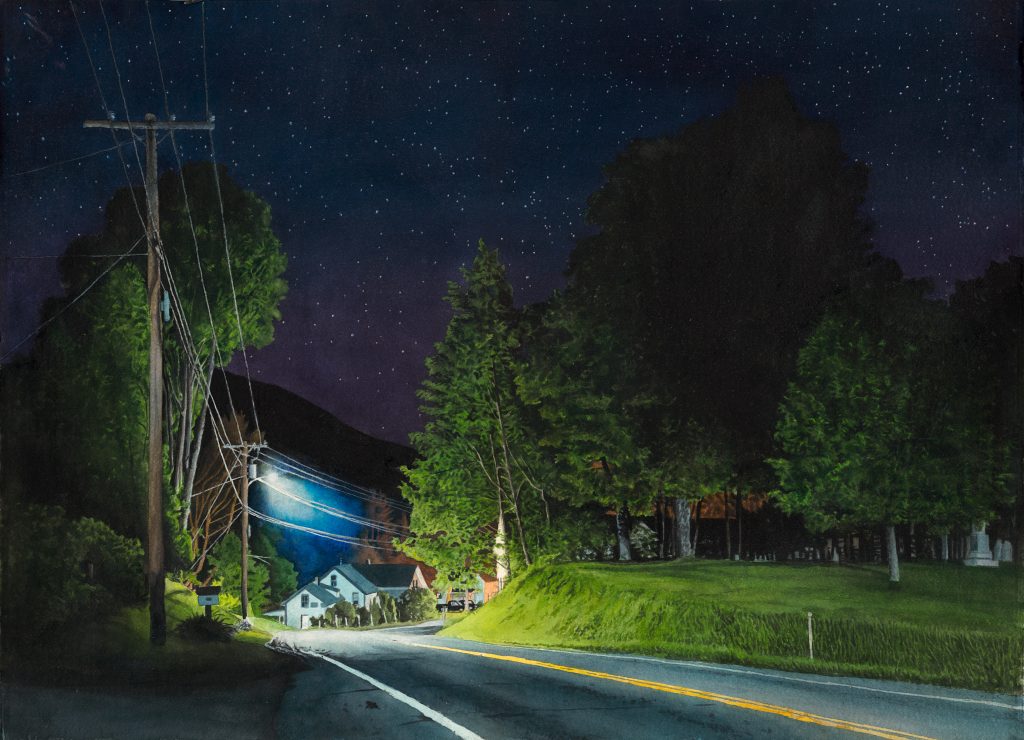
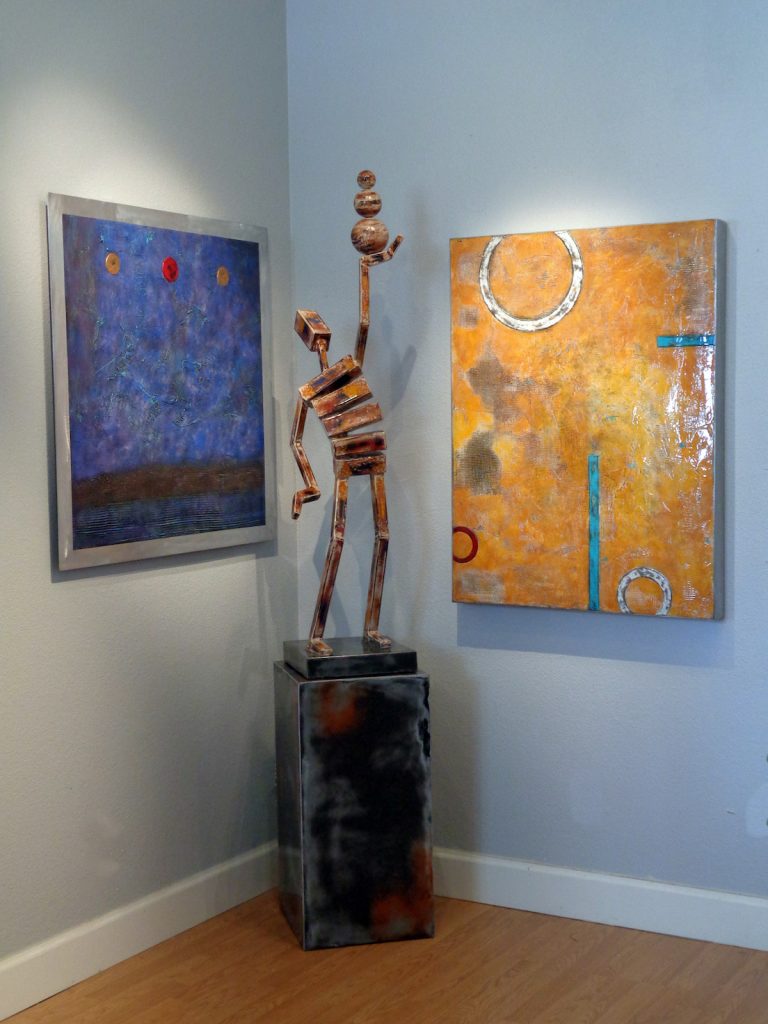

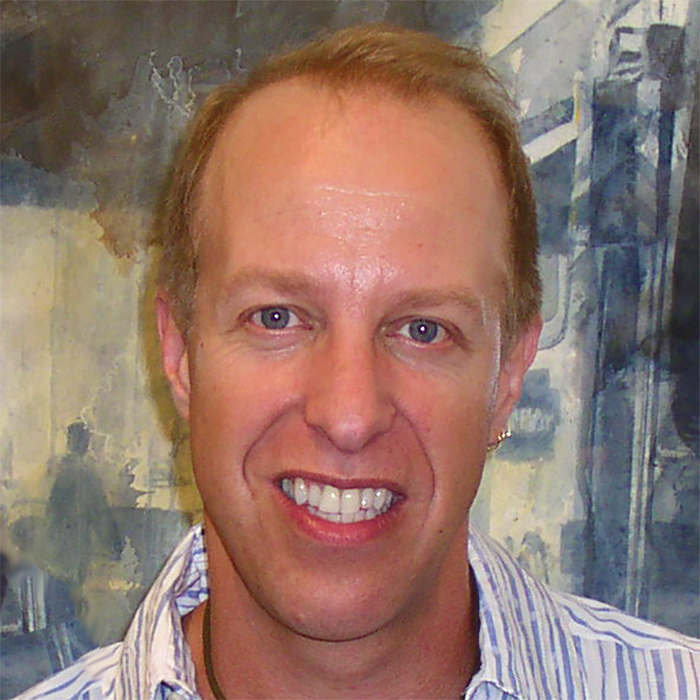
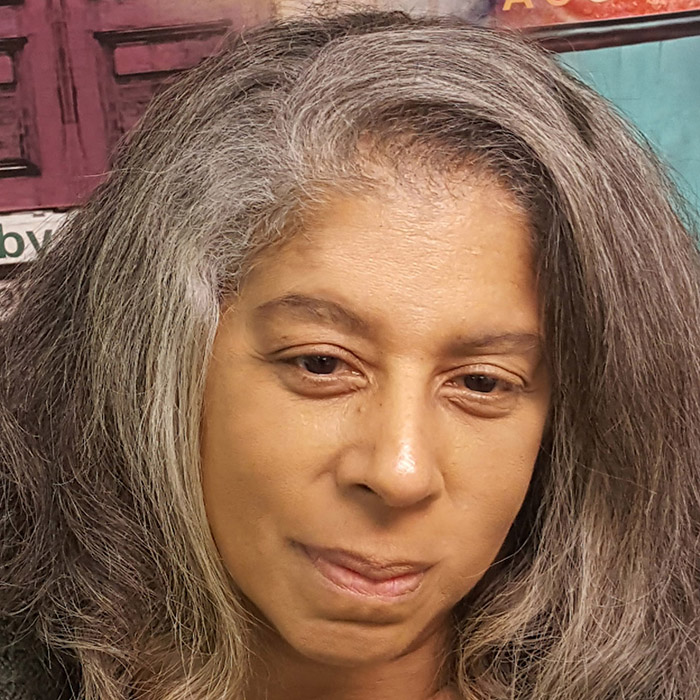
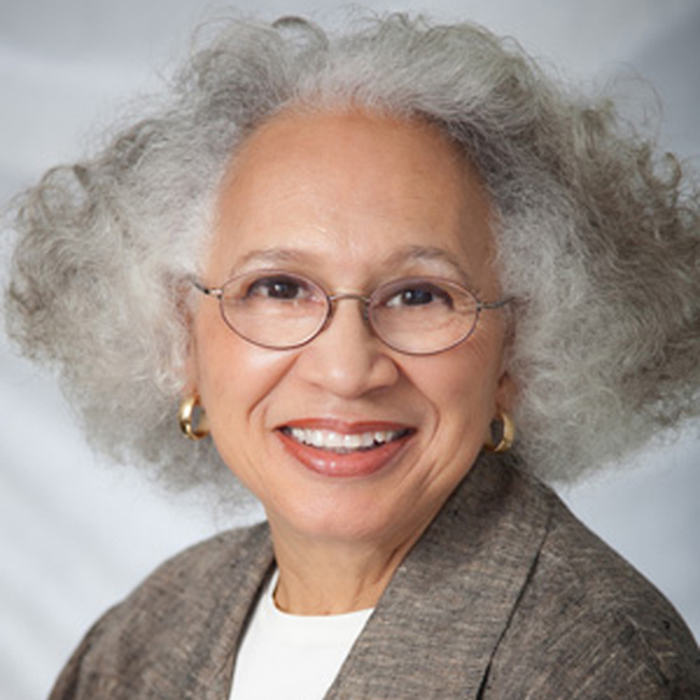
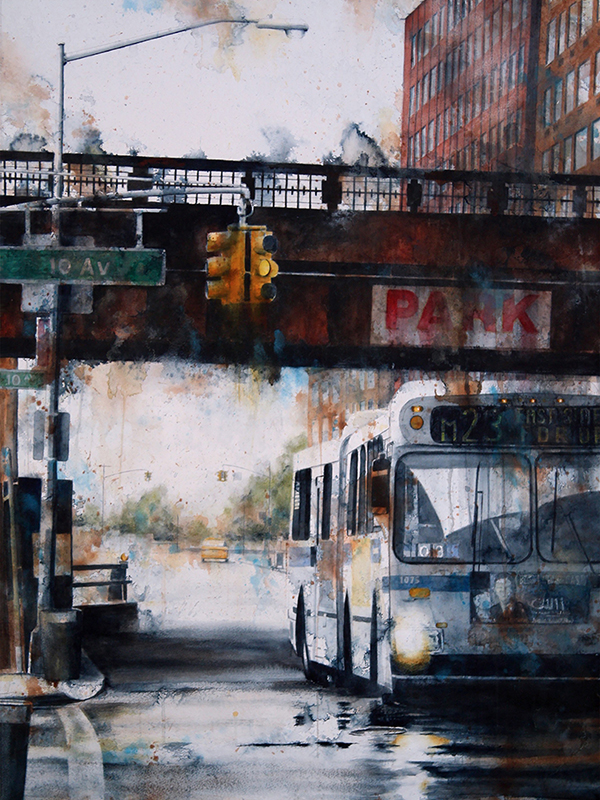
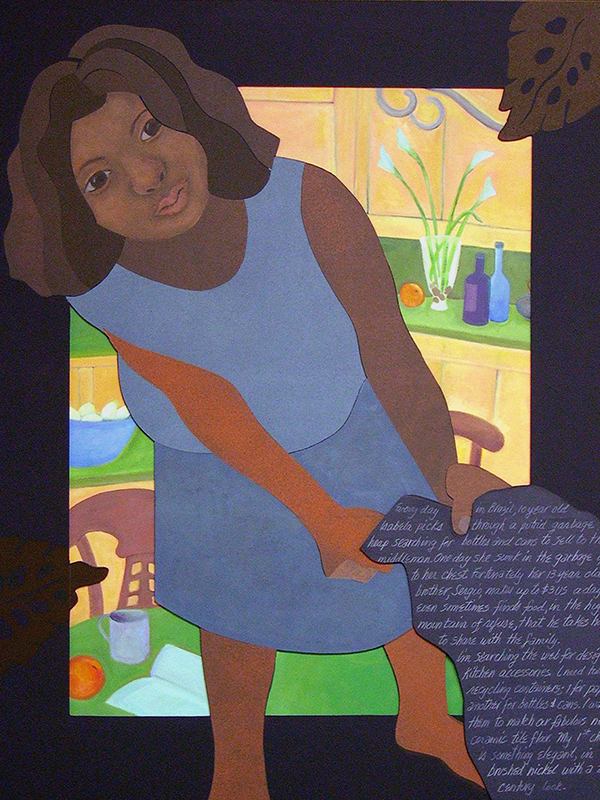
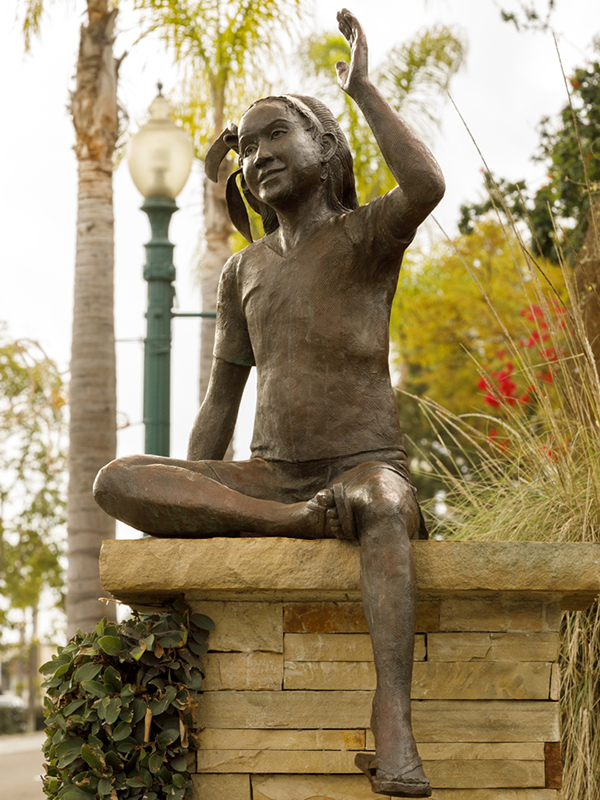
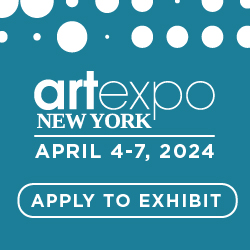



NO COMMENT